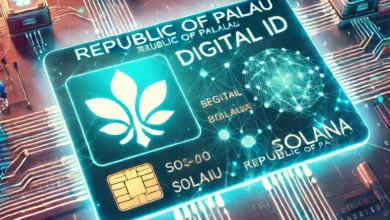Cryptocurrency and Tesla: A Revolutionary Intersection

In recent years, the realms of cryptocurrency and electric vehicles have increasingly intersected, leading to groundbreaking developments in both industries. Tesla, the innovative electric vehicle manufacturer led by Elon Musk, has been at the forefront of integrating cryptocurrency into its business model. This article explores how Tesla’s engagement with cryptocurrency is shaping the future of finance and sustainable transportation, offering a unique perspective on the convergence of these two transformative technologies.
Tesla Foray into Cryptocurrency
Tesla made headlines in early 2021 when it announced a $1.5 billion investment in Bitcoin. This bold move not only underscored the growing legitimacy of cryptocurrency as a viable investment but also highlighted Tesla’s forward-thinking approach to financial management. By investing in Bitcoin, Tesla demonstrated confidence in the digital asset’s potential to store value and hedge against traditional financial market fluctuations.
Cryptocurrency as a Payment Method
In addition to investing in Bitcoin, Tesla initially announced plans to accept Bitcoin as a payment method for its electric vehicles. This decision was revolutionary, as it marked one of the first instances of a major corporation adopting cryptocurrency for everyday transactions. Although Tesla later suspended Bitcoin payments due to environmental concerns related to Bitcoin mining, the move set a precedent and sparked widespread discussion about the future of cryptocurrency in commerce.
Environmental Concerns and Cryptocurrency
Tesla’s temporary halt on accepting Bitcoin payments was primarily driven by concerns over the environmental impact of Bitcoin mining, which relies heavily on energy-intensive processes. Tesla’s commitment to sustainability extends beyond its electric vehicles to its business practices, and the company expressed the need for greener solutions in the cryptocurrency space. This stance has pressured the cryptocurrency industry to explore more sustainable mining practices and renewable energy sources, fostering innovation in both fields.
The Potential of Cryptocurrency in Tesla’s Ecosystem
Despite the pause on Bitcoin payments, Tesla continues to explore how cryptocurrency can integrate into its ecosystem. The company has hinted at accepting other cryptocurrencies that align with its environmental values. For instance, Musk has shown interest in Dogecoin, a cryptocurrency that, although initially created as a joke, has gained significant popularity and is working towards reducing its carbon footprint.
Moreover, the potential for blockchain technology to enhance Tesla’s operations is immense. Blockchain’s transparency and security could streamline supply chain management, ensuring the authenticity of components and reducing fraud. Additionally, smart contracts could automate various processes, such as leasing and insurance, making transactions more efficient and reducing costs.
The Role of Elon Musk
Elon Musk’s influence on the cryptocurrency market cannot be overstated. His tweets and public statements often cause significant fluctuations in the value of cryptocurrencies. For example, his endorsement of Bitcoin and Dogecoin has led to sharp increases in their prices, while his concerns about Bitcoin’s environmental impact caused a temporary dip. Musk’s role as a market influencer highlights the interconnectedness of technology, finance, and media in the digital age.
Regulatory Considerations
As Tesla navigates the integration of cryptocurrency into its business model, regulatory considerations play a crucial role. Governments around the world are still grappling with how to regulate cryptocurrencies effectively. Tesla’s high-profile engagement with cryptocurrency may prompt more stringent regulations aimed at ensuring market stability and consumer protection. Companies like Tesla must stay ahead of regulatory changes to continue leveraging the benefits of cryptocurrency without running afoul of the law.
The Future of Cryptocurrency and Electric Vehicles
The intersection of cryptocurrency and electric vehicles represents a convergence of two disruptive technologies that have the potential to redefine industries. As Tesla continues to innovate in both fields, several trends and possibilities emerge:
- Cryptocurrency Mining with Renewable Energy: Tesla’s focus on sustainability could drive advancements in using renewable energy for cryptocurrency mining. By developing solar-powered mining operations or other green energy solutions, Tesla could mitigate environmental concerns and set a new standard for the industry.
- Integrated Financial Services: Tesla could develop its financial ecosystem, offering services such as cryptocurrency wallets, exchanges, and payment platforms. This integration would provide Tesla customers with seamless access to cryptocurrency transactions and investments, enhancing the overall user experience.
- Tokenization of Assets: Blockchain technology enables the tokenization of assets, allowing for fractional ownership and increased liquidity. Tesla could tokenize its vehicles or other assets, providing new investment opportunities and democratizing access to Tesla products.
- Autonomous Vehicles and Smart Contracts: The combination of autonomous vehicles and blockchain-based smart contracts could revolutionize transportation. For example, a Tesla vehicle could autonomously manage its leasing contract, maintenance schedule, and insurance, reducing the need for intermediaries and lowering costs for consumers.
Tesla engagement with cryptocurrency marks a significant step in the evolution of both industries. By investing in Bitcoin, exploring cryptocurrency payments, and addressing environmental concerns, Tesla is at the forefront of integrating digital finance with sustainable technology. As regulatory frameworks evolve and technological advancements continue, the synergy between cryptocurrency and electric vehicles will likely lead to new innovations and opportunities.





